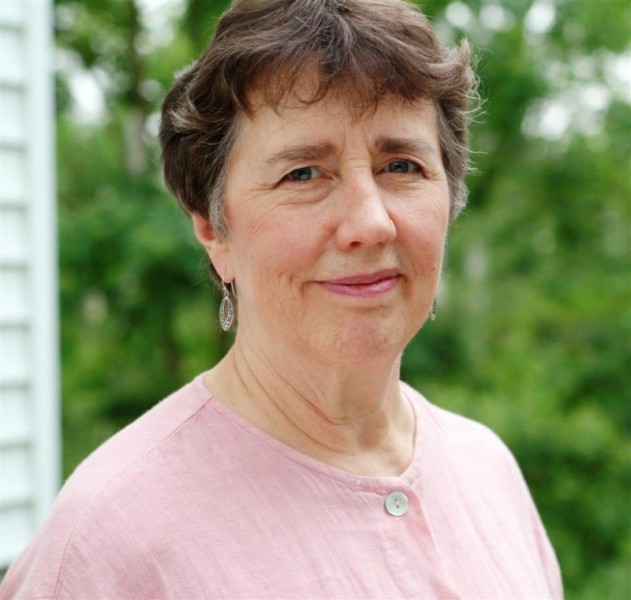Modernist edge rather blunted in Cutting Edge series

Joan Tower’s “Dumbarton Quintet” was performed in the Cutting Edge Concerts series Monday night at Symphony Space.
For a series calling itself Cutting Edge Concerts, the program Monday night at the Leonard Nimoy Thalia in Symphony Space had an odd and contradictory view of where that edge may lie, and even if there was one at all.
The four works played were all from contemporary composers, each of whom was present. None of these figures would be mistaken for avant-gardists: Russell Platt, Robert Xavier Rodriguez, series producer Victoria Bond, and Joan Tower are all working within the tonal, even homophonic, legacy of the classical tradition. Good music that speaks to contemporary times while using forms and structures that have been extant for centuries is always welcome.
The odd thing about the program was that half of it, specifically Platt and Rodriguez’s pieces, seemed to belong to a much earlier era. It was not that the music was written in older styles—it’s debatable whether tools and ideas that remain useful can be thought of as old—but that it seemed unaware of the past 100 years of musical, and human, history.
It was as if Cutting Edge Concerts had unearthed some kind of time capsule. The first item retrieved was Platt’s Memoir, a tidy work from the late 19th century—or early 21st, if one is to believe the program notes. Played by violinist Emilie-Anne Gendron and pianist Steven Beck, Memoir is an excerpt, made in 2010, from a large-scale violin sonata, and this was the world premiere of this arrangement.
This is dreamy, late-romantic music, played sensitively and lyrically by Gendron and Beck. It is attractive and satisfying to the ear, but the music shows no knowledge of any changes in music since Brahms.
Rodriquez’s Xochiquetzal seemed to have arrived from early after the turn of the last century. While Memoires was from the era of parlors, the narrative of Xochiquetzal was full of the pacing, rhythms, and dramatic arcs of silent films.
Rodriquez is narrating a story of the ritual appearance and description of Xochiquetzal, Mayan goddess of music and fertility. A culturally specific work in a late-romantic idiom, it was heard by ears with their own cultural history, specifically those that respond to certain musical clichés with images of adventures set in exotic times and places.
The piece has a solid theme, and is full of energy—violinist Chloe Trevor and pianist Jeff Lankov had a lot do to and they did it forcefully and loudly. Xochiquetzal also churns through not just repetition but redundancy. The form and writing are often ungainly. Rodriguez wraps up the penultimate section so neatly that the finale feels like a long, superfluous coda; a brief violin cadenza feels obligatory and dissipates the steam that the music manages to gather.
Bonds’ refreshing Dreams of Flying, played by the Cassatt Quartet, uses minimal means to maximal effect. The piece was commissioned by the Audubon String Quartet, and stepping off from there, through John James Audubon, Bond wrote the music while thinking about flying like a bird. The Cassatt Quartet’s playing was heavy in the first movement, which is concerned with how intertwining lines create flowing consonance and dissonance. In the last two movements, the music does everything it can to take flight, and the quartet captured its bright, lively energy.
After an onstage discussion between Bond and a very funny Tower, the Cassatt Quartet returned, along with pianist Ursula Oppens, to play Tower’s Dumbarton Quintet. This was the third piece commissioned by the Dumbarton Oaks Estate in Washington, after her main influences, Stravinsky and Copland.
As Tower explained, and is clear in the music, the piece has far less of those composers, and is instead an energetic embrace of, and strong response to, Shostakovich’s chamber music. Long, impassioned lines course through the piece, exploring deep emotional terrain. Cassatt and Oppens played this stirring work like they were playing Brahms, digging in with gusto. This is earthy music that surveys the shattered landscape of the 20th century and embraces what has endured.
Cutting Edge Concerts concludes with “Reflections & Illusions,” music by Jeffrey Mumford, Steve Antosca, Karen LeFrak, James Nyoraku Schlefer and Victoria Bond, 7:30 p.m. April 18. cuttingedgeconcerts.org






